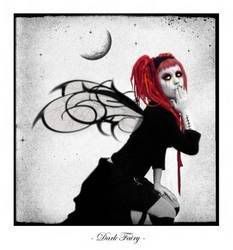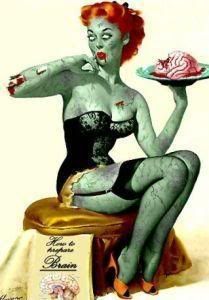Today we have the second of our Grimm Mistresses series of posts. Please welcome S. R. Cambridge as we delve into the tricky task of making deals with the devil and shape shifters.
1.
What inspired your story?
My
Grimm Mistresses story, “The
Leopard’s Pelt,” is based on one of the lesser-known fairy tales collected by
the Brothers Grimm, “Bearskin.” The original tale is fairly dark. The short version of “Bearskin”
is that a young man, usually a soldier, encounters the devil and makes a
bargain with him. The young man agrees to wear a bear’s pelt and never wash or
groom himself for seven years, and if he makes it through, he’ll have riches
unimaginable. The bear’s pelt gives out unlimited money. But if he fails or
dies during the seven years, the devil will get his soul. (I think the devil
really could have made it simpler, honestly.)
Partway
through the seven years, by which time the young man is fairly gross, the young
man meets a gentleman (an innkeeper or a farmer) and helps him out, and in
return, the gentleman tells the young man he will give him one of his three
daughters for a bride. The oldest daughters spurn him because’s he’s terrifying
and disgusting, but the youngest agrees to marry him and he gives her half a
ring.
When his
deal with the devil is complete, the young man gets cleaned up and returns to
his bride as a rich young gentleman. She doesn’t know him at first, and her
sisters get dressed up, since they’re excited about this new prospect. The
little sister then recognizes him by his ring. When the older sisters see him
and realize what they gave up, they kill themselves out of rage and envy. The
devil is pleased at this turn of events, for he’s received two souls for the
price of one.
My story
doesn’t have men bartering off their daughters or sisters so foolish as to
commit suicide over not snagging a man, but I’ve tried to be faithful to the
general plot and tone of the original fairy tale. In my story, the young man is
a poor sailor lost during World War II, and it’s meant to be a bit vague
whether his deal with the devil is real, or a result of PTSD (which was an
unnamed and poorly understood thing at that time). The young bride is a bookish
student, and the older sisters hopefully aren’t so shallow, but nonetheless
might, in the end, find their souls in peril.
2.
As a woman in horror, do you find any added pressure?
Not yet! I’d like to believe that gender is
mattering less, though I suppose we’re not totally there.
3.
Name three things on your desk right now.
A stack of unopened mail, a dying orchid (I’m a
notorious plant-murderer) and a fat, happy cat.
4.
Who are some writers that have influenced your work?
It’s hard to pick one, because I read very widely,
and I think I’m influenced a tiny bit by everything I read. My favourite author
of all time is Margaret Atwood. She is just a stone-cold boss, and her writing
is so wonderful. In the context of fairy tales, I love Angela Carter’s The Bloody Chamber, which is a
collection of beautiful shorts inspired by fairy tales: just as dark as the
originals, but rather more focused on the female characters, and their agency.
5.
Tell us what your future plans are? Any novels in the works?
I always have stuff on the go and I’m hoping to
publish more in 2015. I have another story coming out in another anthology,
Ragnarok Publications’ Blackguards, a
bit later this year. It’s called “The Betyár and the Magus” and it’s set in an
alternate, 19-century Hungary.
6.
If I were your favorite dessert what would I be?
A butter tart. Butter tarts are a Canadian thing.
Basically, they’re baked tarts filled with butter, sugar, egg and syrup. They
are terrible for you, and they are glorious.
7.
What would you tell writers new to the
horror genre?
I’m no veteran, so all I can say is keep writing. It’s like any other skill,
in that the doing is what makes you better and better at it. Sometimes I’ll
look at things I wrote a long time ago and think, Well, that’s a load of hot garbage, but you learn from writing bad
things, and nothing is completely unsalveagable.
8.
Plotter or pantster?
Plotter. I’m hopelessly nerdy that way, and I do
research quite a bit, especially when writing something set in the past. Without
the Internet, in particular Wikipedia, I’d be lost. I can’t deal with having
anachronisms!
Excerpt:
And
one morning at the pond, as he knelt down to fill his canteen like he always
did, his joints popping like an old man’s, his head bent toward the water, he
was suffused with the sense that he was no longer alone.
Henry
looked up, and she was there. A
leopard, skinny but sinuous, built for violence. Her golden eyes fixed on him.
He froze. He had not heard the trees rustling at the leopard’s approach, or her
paws squelching on the muddy ground, but yet here she was, as though she had
appeared from nowhere.
Henry
knew, right away, that the leopard was a she.
He knew, too, that she was what had been watching him, what had fed on that
skeleton until every scrap of meat on it was gone. He expected her eyes to be
filled with feral cruelty, but instead they were calm and knowing. The leopard
bent to the pond, her long pink tongue lapping up the water.
“You
don’t mean to eat me?” Henry asked. He had not spoken aloud for so long, and he
shuddered at the sound of himself: so different, growly and rusty. Don’t be slow, he thought. She can’t understand you.
But the leopard peered up at him.
Her tail swished back and forth as though she were pondering his question. She
stepped forward, and Henry’s hand went to his knife. It was a short-bladed
thing, more suited for spearing bits of food than sparring with big cats, but
it was better than nothing. He held it out at her, his hand shaking.
The leopard gazed at the knife,
unblinking, and then Henry heard, You
show me your weapon, yet it is you who have come here, and eaten from my trees,
and slaked your thirst with my water, and made your bed upon my sand.
It wasn’t that
the leopard had spoken. It was that
Henry heard a voice, her voice, in
his head, like a thought that wasn’t his own but had wormed its way into his
brain nonetheless. The leopard had a sweet, knowledgeable voice, not unlike
Miss Baker’s voice when she got to a good part in a story. “I’m hallucinating,”
Henry croaked. This is it, Lowery. You’ve
lost it.
The leopard was still, but, again,
Henry heard, You have come here, and
eaten from my trees, and slaked your thirst with my water, and made your bed
upon my sand.
“I didn’t come
here on purpose,” Henry whispered. Oh, his head hurt, as though someone had taken a bat to his skull. He couldn’t think. “If you’re going to eat me,
sweetheart, don’t give me a speech first.”
You
would taste of death. The leopard licked her paw, flicking her tongue
around her claws. She did not move her eyes from his. The other tasted of death. All of you taste of death.
BIO: S.R. Cambridge is a lawyer and writer living in Toronto, Ontario. Apart from her fiction, her biggest claim to fame is losing on Jeopardy! You can also read her work in Ragnarok Publications' anthology Blackguards: Tales of Assassins, Mercenaries and Rogues, and follow her on Twitter (twitter.com/SRCambridge).



















































No comments:
Post a Comment
Thanks for commenting!